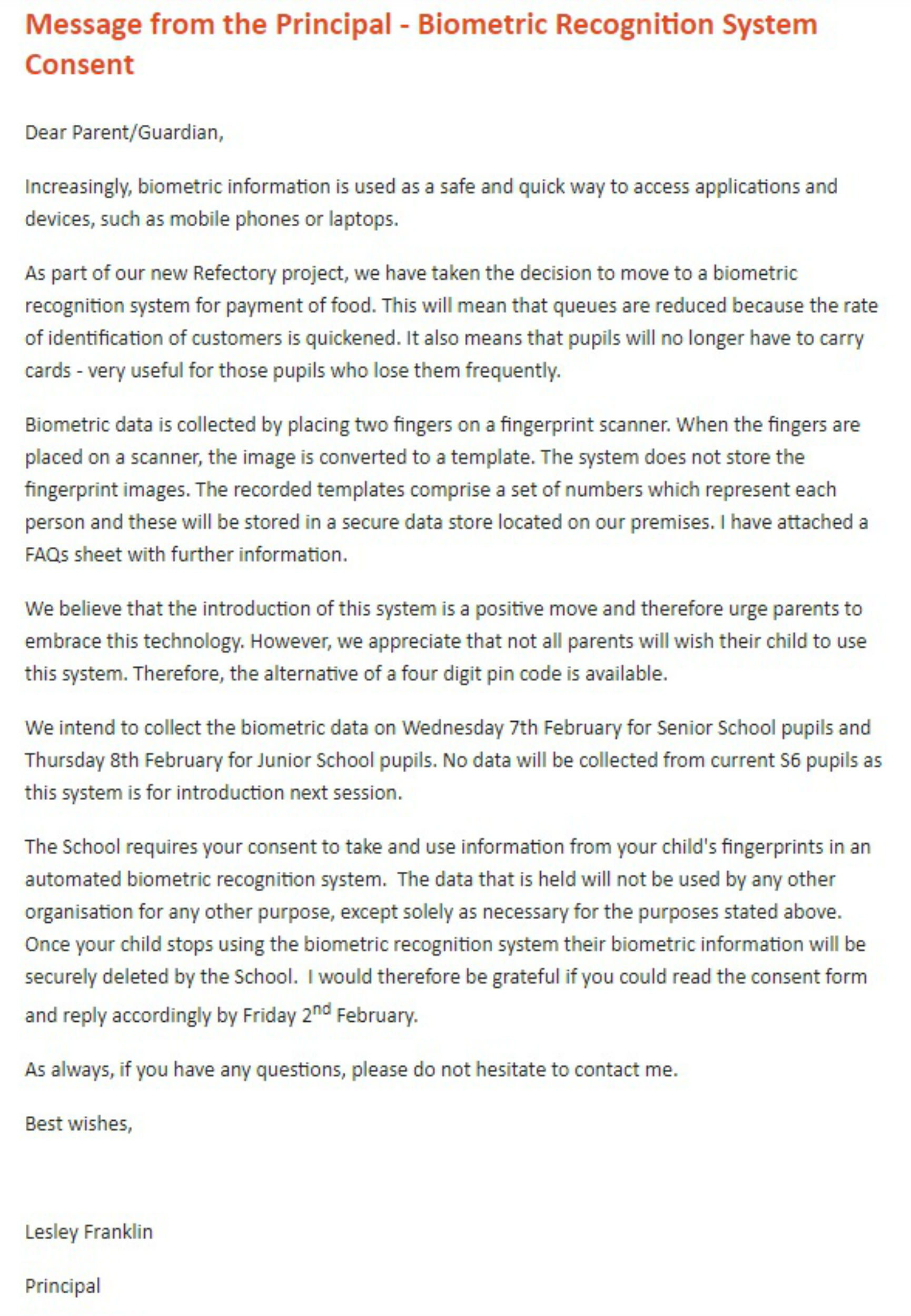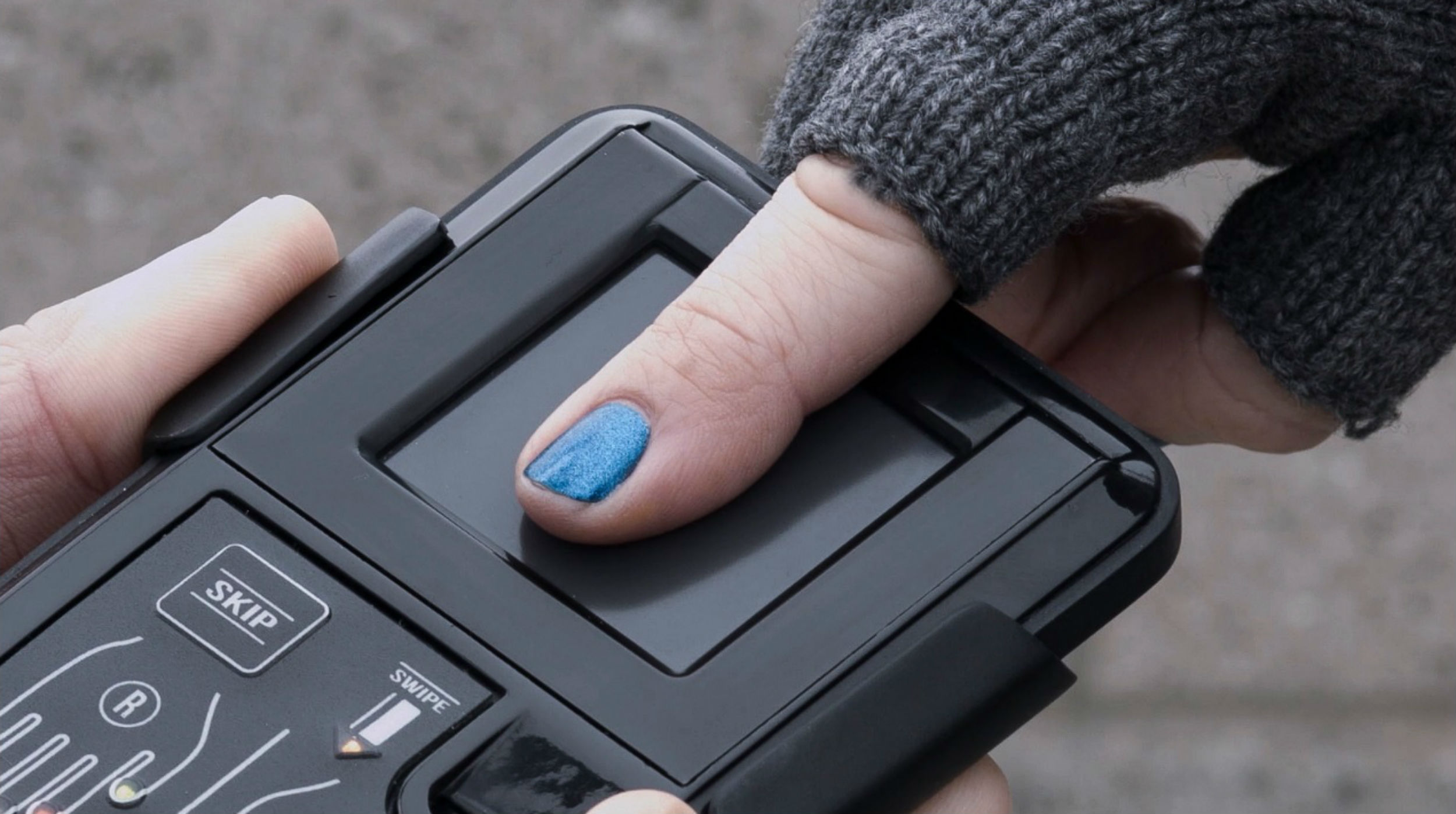ONE of Scotland’s top private schools is introducing fingerprint scanning in a bid to cut queues at lunch time.
George Heriot’s, in Edinburgh, says the biometric technology will mean pupils no longer have to carry cash cards.
The £12,000-a-year college is said to have been the inspiration for Hogwarts, Harry Potter’s school in the JK Rowling novels.
But Principal Lesley Franklin, in a letter to parents, explained her plan to bring the school’s catering arrangements firmly into the 21st century.
Mrs Franklin was at pains to reassure parents that they need not fear for the safety of their children’s biometric data – and offered a four-digit pin code to those who refused to have their dabs taken.

She wrote: “As part of our new refectory project, we have taken the decision to move to a biometric recognition system for payment of food.
“This will mean that queues are reduced because the rate of identification of customers is quickened. It also means that pupils will no longer have to carry cards – very useful for those pupils who lose them frequently.”
She added: “We believe that the introduction of this system is a positive move and therefore urge parents to embrace this technology.
“However, we appreciate that not all parents will wish their child to use this system. Therefore, the alternative of a four digit pin code is available.”

The data will be collected on February 7 and 8 by placing two fingers on a scanner, and the image is converted to a template.
Mrs Franklin stressed in her message that data will not be used by any other organisation for any other reason.
In 2006 Todholm Primary School in Paisley became the first in the world to have pupils paying for their lunch by a scanning system rather than handing over cash.
It was reported that the system identified children with food allergies and encouraged pupils to eat a balanced diet by providing a read-out of what they choose during the week.

Lesley Franklin
Three years ago it was reported that a Freedom of Information (FOI) request showed that four of ten secondary school used biometric technology as a means of identifying pupils – and nearly a third failed in their duty to seek parental consent before introducing the system.
The most common uses of the system are at meal-times where headteachers claim it can be a more “discreet” method of ensuring those pupils entitled to free school meals get them – and in school libraries. Some have used the system for registration of pupils at school.
Schools were banned in 2012 from taking fingerprints or other data from children without their parent’s permission.

